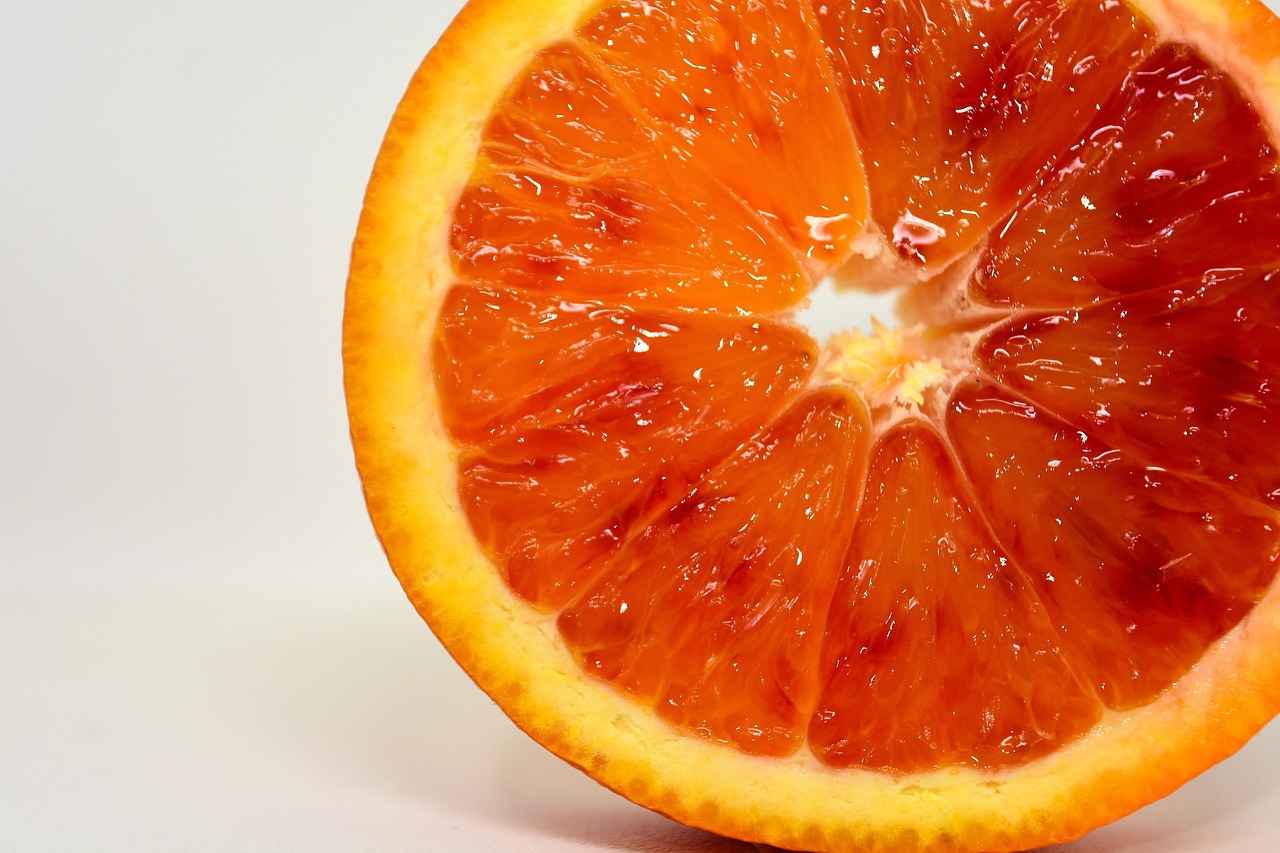This article delves into the important guidelines regarding water consumption prior to fasting blood work. Understanding these guidelines is essential for ensuring accurate test results and maintaining optimal health practices. Many patients often question whether they can drink water before their blood tests, and this article aims to provide clarity on this topic.
What is Fasting Blood Work?
Fasting blood work refers to medical tests that require patients to abstain from all food and drink for a specified period, usually between 8 to 12 hours. The primary purpose of fasting is to obtain baseline measurements of various substances in the blood, which are crucial for accurate medical assessments.
Why is Fasting Required for Blood Tests?
Fasting is essential for certain blood tests as it helps eliminate any interference that food and drink might cause. For instance, consuming food can alter levels of glucose, lipids, and other substances in the bloodstream, leading to skewed results. Understanding the science behind fasting can help patients appreciate its importance in diagnostic accuracy.
Common Tests Requiring Fasting
- Glucose Testing: This test measures blood sugar levels, and fasting is crucial as food intake can artificially raise these levels.
- Lipid Profile: This test assesses cholesterol and triglyceride levels, requiring fasting to ensure precise measurements.
Can You Drink Water Before Fasting Blood Work?
Generally, drinking water before fasting blood work is permitted and even encouraged. Staying hydrated can facilitate blood draws and improve patient comfort. However, it is important to adhere to specific guidelines regarding water consumption.
Benefits of Drinking Water
Hydration plays a significant role in the blood draw process. Drinking water can expand veins, making them easier to locate and puncture, which can reduce discomfort during the procedure. Additionally, adequate hydration helps maintain overall health, especially during fasting.
Potential Risks of Drinking Water
While water is typically allowed, excessive consumption may lead to dilution of blood samples. This dilution could potentially affect the accuracy of certain test results. Therefore, it is crucial to strike a balance between staying hydrated and avoiding overhydration.
How Much Water Can You Drink Before Blood Work?
Experts recommend drinking small amounts of water to stay hydrated without overdoing it. A good rule of thumb is to sip water rather than chugging large amounts. Listening to your body is essential; if you feel thirsty, it’s okay to drink, but moderation is key.
What to Avoid Before Fasting Blood Work
In addition to food, there are specific substances patients should avoid before fasting blood work:
- Avoiding Food and Beverages: All food and caloric beverages should be avoided to ensure reliable test results.
- Medications and Supplements: Some medications and supplements can influence blood test outcomes. Always consult with your healthcare provider regarding what to take or avoid before testing.
Consulting Your Healthcare Provider
Before undergoing fasting blood work, it is vital to consult with a healthcare provider. They can provide personalized advice based on individual health conditions and specific testing requirements, ensuring the best possible outcomes for your health assessments.

What is Fasting Blood Work?
Fasting blood work is a critical component of many medical assessments, allowing healthcare providers to obtain accurate data on a patient’s health status. This process involves patients refraining from all food and beverages, except for water, for a specified duration—typically ranging from 8 to 12 hours. Understanding the intricacies of fasting blood work is essential for ensuring reliable test results and effective medical evaluations.
During fasting blood work, the body enters a state where it can provide a clearer picture of certain biomarkers without the interference of recently consumed food or drink. This abstention is particularly important for tests that measure glucose levels, cholesterol, and other essential health indicators. When patients eat or drink, their blood composition changes, potentially leading to misleading results that can affect diagnosis and treatment plans.
Why is Fasting Required for Blood Tests?
The science behind fasting requirements is rooted in the body’s metabolic processes. When food is consumed, it triggers various biochemical reactions that can elevate levels of glucose and lipids in the bloodstream. For instance, after a meal, blood sugar levels may rise significantly, making it challenging to assess a patient’s baseline glucose tolerance accurately. Similarly, lipid levels can fluctuate based on dietary intake, which is why fasting is crucial for tests like the lipid profile.
Common Tests Requiring Fasting
- Glucose Testing: This test evaluates blood sugar levels and is essential for diagnosing diabetes. Fasting ensures that the results reflect the body’s natural state without the influence of recent meals.
- Lipid Profile: A lipid profile measures cholesterol and triglyceride levels in the blood. Fasting is necessary to obtain accurate measurements, as food intake can artificially inflate these levels.
Exceptions to Fasting Guidelines
While many blood tests require fasting, there are exceptions. For example, some tests may not necessitate fasting, and healthcare providers might advise patients based on individual circumstances. It’s important to consult with a healthcare professional to understand specific requirements.
Can You Drink Water Before Fasting Blood Work?
When preparing for fasting blood work, water consumption is generally permitted and encouraged. Staying hydrated can facilitate the blood draw process, making it easier for healthcare professionals to obtain samples. However, patients should be mindful of their water intake, as excessive consumption may lead to dilution of blood samples, potentially affecting the accuracy of test results.
How Much Water Can You Drink Before Blood Work?
Experts recommend drinking small amounts of water to maintain hydration without overdoing it. Listening to your body is crucial; if you feel thirsty, it’s usually safe to drink a moderate amount of water. However, it’s best to avoid consuming large quantities right before the test.
What to Avoid Before Fasting Blood Work
- Avoiding Food and Beverages: Patients must refrain from all food and caloric beverages before fasting blood work. This includes snacks, juices, and even certain herbal teas.
- Medications and Supplements: Some medications and dietary supplements can influence blood test outcomes. It is advisable to discuss with a healthcare provider whether to continue or pause any medications prior to testing.
Consulting Your Healthcare Provider
Before undergoing fasting blood work, it is essential to consult with your healthcare provider. They can offer personalized advice based on your health history and the specific tests being performed. By understanding the importance of fasting blood work and adhering to guidelines, patients can contribute to more accurate and effective healthcare outcomes.

Why is Fasting Required for Blood Tests?
Fasting is a crucial component of many blood tests, as it helps ensure accurate results by minimizing the potential interference from food and beverages. When we eat or drink, our bodies undergo various metabolic processes that can significantly alter the composition of our blood. This section delves into the underlying science of why fasting is required for certain blood tests, shedding light on its importance for accurate diagnostics.
When we consume food, our bodies break it down into nutrients that enter the bloodstream. For example, eating carbohydrates can lead to a temporary spike in glucose levels, while consuming fatty foods can elevate triglyceride levels. These fluctuations can skew the results of blood tests, making it difficult for healthcare providers to assess a patient’s true health status. By fasting, patients can provide a more stable baseline for testing.
Moreover, fasting allows for the body to reach a state of homeostasis, where metabolic processes are balanced. This is particularly important for tests that measure substances that can be influenced by recent food intake. For instance, the lipid panel, which evaluates cholesterol and triglyceride levels, requires fasting to ensure that the results reflect the patient’s normal state rather than the temporary effects of a recent meal.
In addition to glucose and lipid panels, other tests such as certain liver function tests and specific hormone level assessments may also necessitate fasting. The rationale behind this requirement is to eliminate variables that could lead to misinterpretation of results. For example, the presence of food in the digestive system can alter the levels of enzymes and hormones that are typically measured during these tests.
It’s also important to note that the duration of fasting can vary depending on the specific test being conducted. Generally, a fasting period of 8 to 12 hours is recommended for most tests. Patients should follow the specific instructions provided by their healthcare provider to ensure optimal results.
In conclusion, fasting is essential for certain blood tests to avoid interference from food and drink, which can skew results. Understanding the science behind fasting requirements helps patients prepare adequately for their appointments, leading to more accurate diagnostics and better health outcomes.
Common Tests Requiring Fasting
When it comes to blood tests, understanding the requirements for fasting can significantly impact the accuracy of the results. Fasting is a crucial step for several tests, particularly those measuring substances that can be influenced by recent food and drink intake. This article delves into the common tests that necessitate fasting, ensuring patients are well-informed and prepared for their appointments.
Several blood tests necessitate fasting, including glucose and lipid panels. Knowing which tests require fasting can help patients prepare adequately for their appointments.
- Glucose Testing: One of the most critical tests requiring fasting is the glucose test. This test measures the amount of glucose in the blood, which can be significantly affected by recent food intake. Eating can cause a spike in blood sugar levels, leading to potentially misleading results. For accurate diagnosis, especially in diabetes screening, fasting for at least 8 hours is typically recommended.
- Lipid Profile: Another essential test that requires fasting is the lipid profile. This test evaluates cholesterol and triglyceride levels in the blood. Consuming food can alter lipid levels, making it essential to fast for at least 9-12 hours before the test. Understanding these levels is vital for assessing cardiovascular health and risks.
- Comprehensive Metabolic Panel (CMP): This panel includes tests for glucose, electrolytes, and kidney function markers, all of which can be influenced by food intake. Fasting ensures that the results reflect the body’s baseline levels, providing a clearer picture of overall health.
- Basic Metabolic Panel (BMP): Similar to the CMP, the BMP assesses various metabolic functions and requires fasting to ensure accurate readings of blood glucose and electrolyte levels.
- Iron Tests: Tests measuring iron levels in the blood, such as serum iron and ferritin, may also require fasting. Food can affect iron absorption and levels, so fasting helps provide more reliable results.
Being aware of these common tests and their fasting requirements can help patients avoid unnecessary delays or complications during their healthcare visits. It is advisable to consult with healthcare providers regarding specific fasting instructions, as individual circumstances may vary.
In addition to fasting for the tests, patients should also consider the timing of their appointments. Early morning visits are often recommended, as they allow for longer fasting periods overnight, which can enhance the accuracy of the results.
Ultimately, understanding which tests require fasting and the reasons behind these requirements is essential for anyone undergoing blood work. Proper preparation not only aids in obtaining accurate results but also facilitates more effective healthcare management. Always consult with healthcare professionals for personalized advice tailored to individual health needs.
Glucose Testing
is a critical procedure in the medical field, primarily used to assess an individual’s blood sugar levels. Understanding the significance of fasting prior to this test can greatly impact the accuracy of the results.
Fasting is particularly important for glucose testing, as food intake can significantly elevate blood sugar levels, leading to inaccurate readings. When a patient consumes food, carbohydrates are broken down into glucose, which then enters the bloodstream. This spike in blood sugar can mask underlying health issues, such as insulin resistance or diabetes, making it essential to follow fasting guidelines.
Non-fasting glucose tests can yield misleading results, leading to potential misdiagnosis or inappropriate treatment plans. For instance, a falsely elevated glucose level may prompt unnecessary medical interventions, while a normal reading could overlook a significant health concern. Therefore, understanding the implications of non-fasting on glucose tests is crucial for both patients and healthcare providers.
Typically, patients are advised to fast for at least 8 to 12 hours before undergoing a glucose test. During this fasting period, only water is generally permitted, ensuring that the body is in a baseline state for accurate measurement. It is also essential to note that certain medications can influence blood sugar levels, and patients should consult with their healthcare provider regarding their medication regimen before testing.
In some cases, healthcare providers may recommend a random glucose test, which does not require fasting. This type of test can be useful in emergency situations or when monitoring blood sugar levels in individuals already diagnosed with diabetes. However, it is crucial to understand that the results from a random test may not provide a complete picture of one’s glucose metabolism.
Moreover, the timing of the test can also affect results. For example, blood sugar levels naturally fluctuate throughout the day, influenced by factors such as stress, physical activity, and hormonal changes. Therefore, consistent fasting protocols help ensure that variations in blood glucose are minimized, leading to more reliable test outcomes.
In summary, fasting is a vital component of glucose testing, as it helps prevent food-induced fluctuations in blood sugar levels. Adhering to fasting guidelines not only enhances the accuracy of the test results but also aids healthcare providers in making informed decisions regarding patient care. Patients should always consult with their healthcare provider for personalized advice and to understand the specific requirements for their glucose testing.
Lipid Profile
A lipid profile is a crucial diagnostic tool used to assess the levels of cholesterol and triglycerides in the blood. This test is essential for evaluating cardiovascular health, as abnormal lipid levels can indicate an increased risk of heart disease and other related conditions. To ensure the accuracy of these measurements, patients are typically required to fast for a specified period before the test. This fasting requirement is primarily to eliminate the influence of recent food intake on lipid levels.
Understanding how food intake affects lipid measurements is vital for anyone preparing for a lipid profile. When food is consumed, particularly those high in fats, it can lead to temporary elevations in triglyceride levels. This fluctuation can result in misleading test results, potentially leading to unnecessary treatments or missed diagnoses. Therefore, fasting ensures that the lipid levels measured reflect the body’s baseline state, providing a clearer picture of a person’s cardiovascular health.
During fasting, it is generally recommended to abstain from all foods and caloric beverages, but water is often allowed and can be beneficial. Staying hydrated can facilitate blood draws and enhance overall comfort during the testing process. Moreover, proper hydration can help in obtaining a clear sample, which is crucial for accurate results.
In addition to fasting, it’s important to consider other factors that can influence lipid levels. For instance, medications, such as certain diuretics or steroids, can alter lipid profiles. Additionally, lifestyle factors like physical activity, stress, and even genetics play a significant role in lipid metabolism. Therefore, it is advisable for patients to discuss their medical history and any medications with their healthcare provider prior to the test.
Common Lipid Profile Components
- Total Cholesterol: This measures the overall amount of cholesterol in the blood.
- Low-Density Lipoprotein (LDL): Often referred to as “bad” cholesterol, high levels of LDL can lead to plaque buildup in arteries.
- High-Density Lipoprotein (HDL): Known as “good” cholesterol, HDL helps remove other forms of cholesterol from the bloodstream.
- Triglycerides: These are a type of fat found in the blood, and elevated levels can increase the risk of heart disease.
After the test, the lipid profile results can help guide treatment decisions. If levels are found to be outside the normal range, healthcare providers may recommend lifestyle changes, such as dietary adjustments or increased physical activity, or in some cases, medication to help manage lipid levels.
In conclusion, a lipid profile is a valuable tool in assessing cardiovascular health, and understanding the importance of fasting and the impact of food intake is crucial for obtaining accurate results. Patients should always consult with their healthcare provider for personalized advice and recommendations related to their lipid profile and overall health.
Exceptions to Fasting Guidelines
When it comes to medical testing, fasting is often a requirement for accurate results. However, there are specific exceptions to this guideline that patients should be aware of. This section will clarify those scenarios, ensuring that individuals understand when fasting may not be necessary.
While many blood tests necessitate fasting, there are notable exceptions that can provide flexibility for patients. Understanding these exceptions is crucial for ensuring both comfort and accurate results.
- Non-fasting Glucose Tests: In some cases, healthcare providers may opt for a non-fasting glucose test, particularly for screening purposes. This is especially relevant for patients who may have difficulty fasting due to medical conditions.
- Certain Lipid Tests: While lipid profiles typically require fasting, some recent studies suggest that non-fasting lipid tests can still provide valuable information for assessing cardiovascular risk. Patients should consult their healthcare provider to determine if this option is suitable for them.
- Thyroid Function Tests: Thyroid tests usually do not require fasting. Patients can eat and drink normally before undergoing these tests, which measure hormone levels in the blood.
- Basic Metabolic Panel (BMP): A BMP can often be performed without fasting, as it measures various substances in the blood that are not significantly affected by recent food intake.
- Complete Blood Count (CBC): A CBC does not require fasting and can be performed at any time of the day, making it a convenient option for patients.
It’s important to note that while these exceptions exist, individual circumstances may vary. Patients should always consult with their healthcare provider regarding their specific tests and whether fasting is necessary.
Before any blood work, it is essential to discuss with a healthcare provider whether fasting is required. They can provide personalized advice based on the patient’s health status and the specific tests being conducted. This consultation ensures that patients are well-informed and prepared for their medical evaluations.
Accurate blood test results are vital for effective diagnosis and treatment. While fasting is important for many tests, the exceptions outlined above demonstrate that not all situations require it. By being informed about these guidelines, patients can approach their healthcare with confidence and clarity.
In conclusion, while fasting is a common requirement for many blood tests, there are important exceptions to consider. Understanding these exceptions can help alleviate the stress associated with fasting and ensure that patients receive the necessary care without unnecessary complications.

Can You Drink Water Before Fasting Blood Work?
When preparing for fasting blood work, many patients wonder about the guidelines surrounding water consumption. While the general consensus is that drinking water is allowed, it’s essential to understand the implications and best practices to ensure accurate test results. This section delves into the benefits and considerations of hydrating before undergoing blood tests.
Understanding the Guidelines
Most healthcare providers agree that staying hydrated by drinking water is permissible before fasting blood tests. However, recommendations can vary based on the specific test being conducted and the healthcare provider’s protocols. It’s always best to follow the instructions given by your medical professional.
Benefits of Drinking Water
- Facilitates Blood Draws: Adequate hydration can make veins more prominent and easier to access, which can lead to a smoother blood draw experience.
- Improves Comfort: Staying hydrated may reduce feelings of dizziness or faintness that some patients experience when fasting.
- Supports Accurate Results: While water does not contain calories or nutrients that could affect test outcomes, it helps maintain blood volume, which is crucial for certain tests.
Potential Risks of Drinking Water
While moderate water consumption is generally safe, excessive intake can pose risks. Overhydration may dilute blood samples, potentially affecting the accuracy of specific tests, particularly those measuring concentrations of substances in the blood. Therefore, it’s vital to strike a balance and avoid drinking copious amounts of water just before testing.
How Much Water Can You Drink Before Blood Work?
Determining the appropriate amount of water to drink before fasting blood work is crucial. Here are some general recommendations:
- Moderate Intake: Experts suggest drinking small amounts of water, typically around 8 ounces, a few hours before your appointment.
- Listening to Your Body: Pay attention to your body’s signals. If you’re feeling thirsty, it’s usually a sign that you need to hydrate, but avoid overindulging.
What to Avoid Before Fasting Blood Work
In addition to food, there are substances that can impact blood test results:
- Avoiding Food and Caloric Beverages: Patients should refrain from consuming any food or caloric drinks, as these can skew test results.
- Medications and Supplements: Some medications and dietary supplements may affect blood tests. Always consult your healthcare provider regarding any medications you are taking.
Consulting Your Healthcare Provider
Before undergoing any fasting blood work, it is essential to consult with your healthcare provider. They can offer personalized advice based on your health status and the specific tests being performed. This ensures that you are adequately prepared and that your test results are as accurate as possible.
In summary, while drinking water before fasting blood work is generally permitted and beneficial, it is crucial to adhere to guidelines provided by healthcare professionals. Staying hydrated can facilitate the testing process, but moderation is key to avoid potential dilution of blood samples. Always prioritize communication with your healthcare provider to ensure the best outcomes for your health.
Benefits of Drinking Water
Staying properly hydrated is a crucial aspect of preparing for fasting blood work. While the primary focus is often on abstaining from food, many people overlook the importance of water intake. In this section, we will explore the before fasting blood tests and how it can enhance both the testing experience and the accuracy of results.
- Facilitates Blood Draws: Adequate hydration makes veins more prominent and easier to locate. This is particularly beneficial for individuals with smaller or deeper veins, reducing the likelihood of multiple attempts during blood draws.
- Improves Comfort: Being well-hydrated can help minimize discomfort during the blood draw process. Dehydration can lead to a more challenging experience, making the procedure feel more invasive.
- Enhances Sample Quality: Hydration can improve the quality of the blood sample, as it helps maintain the appropriate viscosity of the blood. Thicker blood can pose challenges for accurate testing and may lead to erroneous results.
- Reduces Risk of Complications: Staying hydrated can help prevent complications such as fainting or dizziness, which may occur if a patient is dehydrated during the testing process. This is especially important for those who may already be anxious about blood tests.
It is important to note that while drinking water is generally permitted before fasting blood work, moderation is key. Overhydration can dilute the blood sample, potentially affecting the accuracy of certain tests. Therefore, it is advisable to consume small amounts of water leading up to the appointment.
Experts recommend drinking water in moderation, ideally around 8 to 16 ounces in the hours before the test. This amount is sufficient to ensure hydration without risking dilution of the blood sample. Additionally, individuals should listen to their bodies; if they feel thirsty, it is a good indication that they should drink.
In conclusion, the benefits of drinking water before fasting blood work are numerous. From facilitating easier blood draws to improving overall comfort, staying hydrated plays a vital role in the testing process. Patients should aim for a balance, ensuring they are well-hydrated while also adhering to the guidelines set by their healthcare providers.
Potential Risks of Drinking Water
When preparing for fasting blood work, many patients often wonder about the guidelines surrounding water consumption. While staying hydrated is generally encouraged, it is crucial to understand the potential risks associated with drinking too much water before a test. This section will explore the delicate balance between hydration and the implications of overhydration on blood sample integrity.
Hydration plays a vital role in overall health and can significantly affect the ease of blood draws. Adequate water intake helps to dilute blood viscosity, making veins more prominent and easier to access. This is particularly beneficial for those who may have difficulty with blood draws due to dehydration or smaller veins.
While moderate water intake is beneficial, excessive consumption can lead to dilution of blood samples. This dilution can skew test results, particularly for tests that measure concentrations of various substances in the blood, such as electrolytes, proteins, and hormones. It is essential to strike a balance; too much water can lead to inaccurate readings, complicating diagnosis and treatment plans.
Overhydration can lead to a condition known as water intoxication, where the body’s electrolyte balance is disrupted. This can result in lower concentrations of critical markers in the blood, such as sodium and potassium, which are crucial for proper cellular function. For instance:
- Electrolyte Imbalance: A significant dilution of electrolytes can lead to false results, potentially misguiding healthcare providers.
- Protein Levels: Tests measuring protein levels may show artificially low results, affecting diagnoses related to liver and kidney function.
- Hormonal Tests: Hormone levels, which are typically measured in small concentrations, may also be inaccurately represented in diluted samples.
To avoid the risks associated with overhydration while still ensuring adequate hydration, patients should consider the following recommendations:
- Moderate Water Intake: Aim to drink a small amount of water, typically around 8 ounces, before the test. This amount is usually sufficient to stay hydrated without risking dilution.
- Timing Matters: Drink water at least an hour before the test to allow your body to process it without causing immediate dilution.
- Listen to Your Body: Pay attention to your thirst cues. If you feel thirsty, it’s generally safe to drink a little water, but avoid excessive amounts.
Before your fasting blood work, it is always advisable to consult with your healthcare provider. They can provide personalized recommendations based on your individual health needs and the specific tests being conducted. Understanding the implications of hydration can help ensure that your blood work yields accurate and reliable results.
In summary, while hydration is important before fasting blood work, it is equally vital to avoid excessive water consumption to prevent dilution of blood samples. By following expert guidelines and listening to your body, you can help ensure that your test results are both accurate and informative.

How Much Water Can You Drink Before Blood Work?
When preparing for fasting blood work, understanding how much water you can consume is vital for achieving accurate results. This section delves into the importance of hydration and provides practical guidelines to help you navigate this aspect effectively.
Understanding Hydration Needs
Hydration plays a crucial role in the blood testing process. Consuming an appropriate amount of water before your appointment can help ensure that your blood draws are easier and more comfortable. However, it is essential to strike a balance to avoid potential complications that may arise from overhydration.
General Recommendations for Water Intake
- Experts generally recommend drinking 8 to 16 ounces of water in the hour leading up to your blood test. This amount is typically sufficient to keep you hydrated without risking dilution of your blood sample.
- Avoid consuming large quantities of water, as excessive intake can lead to a condition known as water intoxication, which may skew test results.
- If you feel thirsty, it’s a good indicator that your body needs hydration. Listen to your body’s signals to determine your water intake.
Benefits of Staying Hydrated
Staying adequately hydrated before your blood work can have several benefits:
- Improved Blood Flow: Proper hydration can enhance blood circulation, making it easier for healthcare professionals to draw blood.
- Reduced Discomfort: A well-hydrated body can decrease the chances of experiencing discomfort or faintness during the blood draw.
- Accurate Results: While water does not interfere with most blood tests, it helps ensure that your blood sample is of optimal quality.
Listening to Your Body
Each person’s hydration needs can vary based on factors such as body weight, activity level, and overall health. It’s important to:
- Pay attention to how you feel. If you are feeling dehydrated, it may be beneficial to drink a bit more water.
- Consider the time of day and your usual hydration habits. If you typically drink more water, adjust your intake accordingly.
When to Avoid Drinking Water
While hydration is generally encouraged, there are specific instances where you may need to limit your water intake:
- If you have been instructed by your healthcare provider to avoid all fluids before your blood test, it’s crucial to follow those guidelines strictly.
- Patients undergoing specific tests, such as certain hormone levels, may need to adhere to stricter fasting protocols that include avoiding water.
In conclusion, determining the right amount of water to drink before fasting blood work is essential for optimal results. By adhering to general recommendations, listening to your body, and consulting with your healthcare provider, you can ensure that you are well-prepared for your blood tests. Staying hydrated not only supports the testing process but also contributes to your overall health and well-being.
General Recommendations
When preparing for fasting blood work, understanding how to manage your hydration is crucial. While the general guideline is to abstain from food and caloric beverages, water consumption is often permitted and can be beneficial. This section provides detailed recommendations to help you stay hydrated without compromising the accuracy of your test results.
Experts typically advise patients to drink small amounts of water before fasting blood work. This approach helps maintain hydration levels without the risk of diluting blood samples, which could lead to inaccurate results. Here are some practical tips for managing your water intake:
- Moderation is Key: Aim to drink around 8 to 16 ounces of water in the hours leading up to your appointment. This amount is usually sufficient to keep you hydrated without overdoing it.
- Timing Matters: Ideally, you should drink water about one to two hours before your blood draw. This allows your body to process the fluid without overwhelming your system.
- Listen to Your Body: Pay attention to how you feel. If you are thirsty, it’s a sign that your body needs hydration. However, avoid drinking excessively, as this could lead to overhydration.
- Avoid Ice-Cold Water: Drinking water at room temperature can be easier on your stomach and may help you feel more comfortable before your test.
Staying hydrated can improve your overall experience during the blood draw. Proper hydration makes veins more prominent, which can facilitate easier access for the phlebotomist. Additionally, being well-hydrated may help reduce feelings of dizziness or faintness that some people experience during blood tests.
While water is generally safe to consume before fasting blood work, it is essential to be aware of the potential risks associated with excessive intake. Drinking too much water can lead to diluted blood samples, which may skew test results, particularly for tests that require precise measurements, such as electrolyte levels or certain hormone tests.
To mitigate these risks, it’s important to find a balance. If you are unsure about how much water to drink, consider consulting your healthcare provider for personalized advice based on your specific health needs and the type of blood tests you will be undergoing.
In summary, drinking small amounts of water before fasting blood work is generally recommended and can aid in a smoother testing process. By following these guidelines and listening to your body, you can ensure that you remain hydrated without compromising the accuracy of your blood tests.
Listening to Your Body
Listening to your body is a fundamental aspect of maintaining adequate hydration, especially when preparing for fasting blood work. Hydration needs can vary significantly from person to person, influenced by factors such as age, activity level, climate, and overall health. Understanding these individual requirements is essential for ensuring that you are sufficiently hydrated without the risk of overconsumption.
When it comes to hydration, awareness of your own body signals is paramount. Thirst is a natural indicator that your body requires fluid intake, but it is not the only sign. Other symptoms, such as dry mouth, fatigue, or even headaches, can also indicate that you need to drink more water. It is crucial to recognize these signs and respond appropriately to maintain optimal hydration levels.
Before fasting blood work, it is generally advised to drink water, but the amount can vary. Here are some practical tips to help you gauge your hydration levels:
- Monitor Urine Color: A simple way to check your hydration status is by observing the color of your urine. Pale yellow typically indicates good hydration, while dark yellow suggests that you may need to drink more fluids.
- Listen to Thirst Cues: If you feel thirsty, it’s a clear signal that your body needs water. However, it’s important not to wait until you are extremely thirsty, as this can indicate mild dehydration.
- Adjust for Activity Levels: If you engage in physical activities or live in a hot climate, your hydration needs will increase. Be proactive in drinking water in these situations.
While staying hydrated is important, overhydration can also pose risks, particularly before blood tests. Consuming excessive amounts of water can dilute your blood samples, leading to inaccurate test results. Therefore, it is crucial to find a balance. Aim for a moderate intake of water in the hours leading up to your appointment.
In addition to these tips, consider keeping a water intake log, especially if you are preparing for a significant health evaluation. Tracking your hydration can help you identify patterns and adjust your intake accordingly. This practice can be particularly beneficial for individuals who may struggle with hydration or are unsure of their needs.
Ultimately, and understanding your individual hydration requirements will empower you to make informed decisions. By paying attention to your body’s signals, you can ensure that you are adequately hydrated for fasting blood work, maximizing the accuracy of your test results.
In summary, hydration is a vital component of health, particularly when preparing for medical tests. By being mindful of your body’s needs and adjusting your water intake accordingly, you can navigate the fasting process with confidence and clarity.

What to Avoid Before Fasting Blood Work
When preparing for fasting blood work, it is crucial to understand the various factors that can affect the accuracy of test results. Beyond food intake, certain substances and behaviors can also interfere with the outcomes of your tests. This section will provide you with a comprehensive overview of what to avoid to ensure the most accurate testing results.
First and foremost, patients must refrain from consuming any food prior to fasting blood work. This includes all solid foods and caloric beverages. Even small snacks can lead to significant changes in blood chemistry, potentially skewing the results. Here are some specific items to avoid:
- Fruits and Vegetables: These can introduce sugars and other compounds that may alter test results.
- Sweetened Beverages: Drinks like soda or juice contain sugars that can elevate blood glucose levels.
- Caffeinated Drinks: Coffee and tea can stimulate metabolism and may affect certain blood markers.
In addition to food, certain medications and supplements can influence blood test outcomes. It is essential to consult with your healthcare provider regarding any medications you are taking. Some common substances to be cautious about include:
- Over-the-Counter Medications: Pain relievers like ibuprofen can affect kidney function tests.
- Vitamins and Minerals: Some supplements, particularly those containing iron or vitamin B12, can skew results.
- Herbal Supplements: Products like ginkgo biloba or garlic can affect clotting tests.
Alcohol should be avoided for at least 24 hours before fasting blood work. It can significantly affect liver function tests and blood sugar levels, leading to misleading results. Even moderate consumption can have an impact, so it’s best to steer clear entirely.
Engaging in strenuous exercise prior to blood work can also affect test results. Physical activity can temporarily elevate certain markers, such as creatinine and liver enzymes. It is advisable to maintain a normal level of activity but avoid intense workouts in the days leading up to your test.
Smoking can have immediate effects on your blood composition, including elevated carbon monoxide levels and altered cholesterol levels. If you smoke, try to refrain from smoking for at least a few hours before your test to achieve more accurate results.
While proper hydration is important, it’s essential to strike a balance. Excessive water intake can dilute blood samples, potentially leading to inaccurate results. Aim for a moderate amount of water to stay hydrated without overdoing it.
By being aware of these factors and making the necessary adjustments, you can help ensure that your fasting blood work yields the most accurate results possible. Always consult with your healthcare provider for personalized advice tailored to your specific health needs.
Avoiding Food and Beverages
When preparing for fasting blood work, it is crucial for patients to understand the importance of abstaining from food and caloric beverages. This practice is essential to ensure the accuracy of test results, which can significantly influence medical diagnoses and treatment plans. Below, we delve into the specific types of items to avoid before your blood test.
Before undergoing fasting blood work, patients must refrain from consuming any solid foods and caloric drinks for a specified period, usually 8-12 hours, depending on the test. Here are the categories of items to avoid:
- Solid Foods: This includes all types of meals and snacks, such as fruits, vegetables, grains, meats, and dairy products. Even small bites of food can interfere with test results.
- Caloric Beverages: Drinks that contain calories, such as juices, sodas, and flavored coffees, should be avoided. These can impact blood sugar levels and other metabolic markers.
- Alcohol: Alcoholic beverages should be avoided for at least 24 hours prior to fasting blood work. Alcohol can alter liver function tests and other critical parameters.
- High-Sugar Foods: Foods rich in sugar, such as candy and desserts, can lead to temporary spikes in blood glucose levels, skewing results for tests like glucose tolerance.
It’s important to note that while water is typically allowed and even encouraged, it is advisable to limit intake to avoid any potential dilution of blood samples. Staying hydrated can facilitate easier blood draws and enhance patient comfort during the procedure.
In addition to food and caloric beverages, patients should also be aware of certain medications and supplements that may affect blood test outcomes. It is recommended to consult with a healthcare provider regarding any prescribed or over-the-counter medications, as some can interfere with test results.
By adhering to these guidelines and avoiding specific food and drink items, patients can help ensure that their fasting blood work yields accurate and reliable results. Proper preparation not only aids in effective diagnosis but also contributes to better overall health management.
Medications and Supplements
When preparing for fasting blood work, it is important to consider the impact of medications and supplements on test results. Many patients may not realize that certain substances can alter the outcomes of blood tests, potentially leading to inaccurate diagnoses or unnecessary follow-up procedures. This section provides essential guidance on how to manage these substances prior to testing.
Medications can significantly influence blood test results. For example, antibiotics may affect liver function tests, while diuretics can alter electrolyte levels. It is crucial to inform your healthcare provider about all medications you are taking, including prescription drugs, over-the-counter medications, and herbal supplements. This transparency allows for a more accurate interpretation of your test results.
- Blood Thinners: Medications like warfarin can affect coagulation tests.
- Cholesterol Medications: Statins may influence lipid panel results.
- Antidepressants: Some can impact metabolism tests.
Supplements, though often perceived as harmless, can also interfere with blood tests. For instance, vitamin K can affect blood clotting tests, and fish oil may influence triglyceride levels. Patients should be cautious about taking any supplements, especially those that claim to boost health or enhance performance, in the days leading up to a blood test.
To ensure accurate blood test results, consider the following guidelines:
- Consult Your Healthcare Provider: Always discuss your current medications and supplements with your doctor before the test.
- Avoid Certain Substances: If advised, refrain from taking specific medications or supplements for a period before your test.
- Timing Matters: Some medications may need to be paused a few days prior to testing; follow your healthcare provider’s instructions carefully.
Before your appointment, it is helpful to keep a detailed list of all medications and supplements you are taking, including dosages and frequency. This documentation can assist your healthcare provider in making informed decisions regarding your testing and treatment plans.
Managing medications and supplements before fasting blood work is crucial for obtaining reliable test results. By being proactive and communicating openly with your healthcare provider, you can minimize the risk of interference and ensure that your blood tests accurately reflect your health status. Always prioritize your well-being by following professional advice and guidelines.

Consulting Your Healthcare Provider
Before undergoing fasting blood work, it is crucial to consult with a healthcare provider. This step is not merely a formality; it is a vital part of ensuring that the testing process aligns with your unique health profile and testing requirements. Each individual has different health conditions, medications, and lifestyle factors that could influence the accuracy of blood test results.
Healthcare providers can offer personalized advice tailored to your specific situation. For instance, they can clarify which tests require fasting, the duration of fasting needed, and whether any medications or supplements should be paused prior to testing. This is particularly important because certain medications can alter blood chemistry, potentially leading to misleading results.
Additionally, patients with chronic conditions such as diabetes or cardiovascular issues may have different fasting requirements or recommendations. A healthcare provider can help navigate these complexities, ensuring that you are adequately prepared for your blood work. They can also provide guidance on hydration—while drinking water is generally acceptable, the amount and timing can vary based on individual health considerations.
- Understanding Your Health Status: Discussing your medical history and current health status with your provider can help identify any potential issues that may arise during fasting or testing.
- Clarifying Test Requirements: Different tests have different fasting protocols. Knowing these specifics can help you prepare effectively.
- Medication Management: Your provider can advise which medications should be continued or paused to avoid interference with test results.
Moreover, consulting a healthcare provider can alleviate any anxiety surrounding the testing process. Understanding what to expect can make the experience less daunting, especially for those who may be nervous about needles or blood draws. Your provider can explain the procedure in detail, helping to set realistic expectations about the experience and the timeline for receiving results.
In summary, the importance of consulting with a healthcare provider before fasting blood work cannot be overstated. Personalized advice ensures that you are fully prepared and that the results of your tests will be as accurate and informative as possible. Always prioritize your health by seeking professional guidance tailored to your unique needs.
Frequently Asked Questions
- Can I drink water before fasting blood work?
Yes, in most cases, drinking water is allowed before fasting blood work. Staying hydrated can actually make the blood draw easier and more comfortable.
- How much water should I drink before my blood test?
It’s generally recommended to drink small amounts of water to stay hydrated without overdoing it. Listening to your body is key; just don’t go overboard!
- Are there any risks to drinking water before my test?
While water is usually fine, excessive consumption can dilute blood samples, potentially affecting test results. Moderation is essential!
- What should I avoid before fasting blood work?
You should avoid all food and caloric beverages, as well as certain medications and supplements that might interfere with your test results.
- Should I consult my healthcare provider before fasting blood work?
Absolutely! It’s always a good idea to get personalized advice from your healthcare provider based on your specific health needs and testing requirements.














